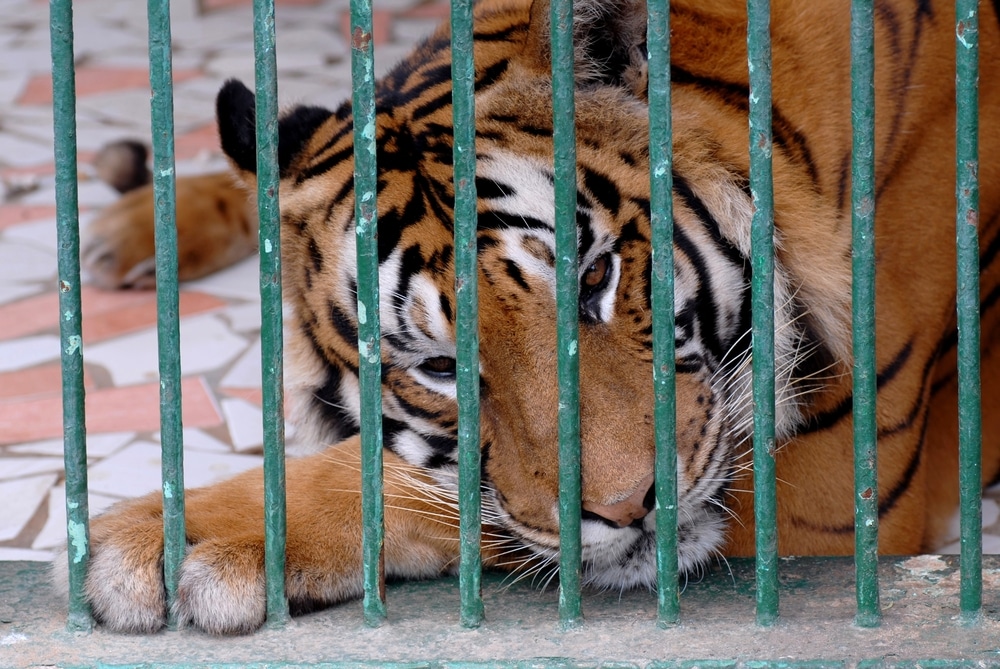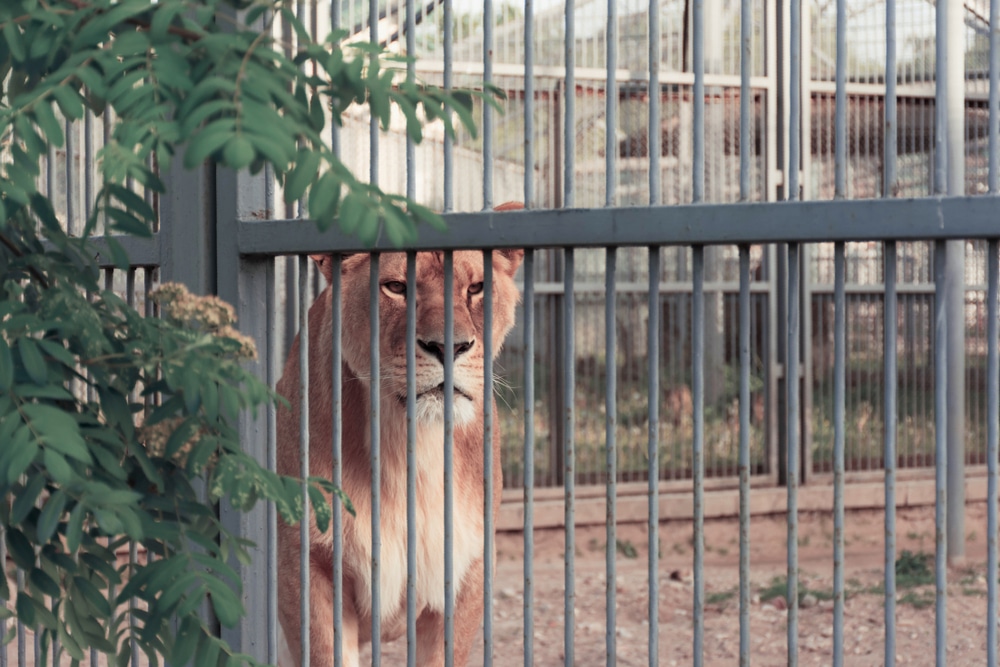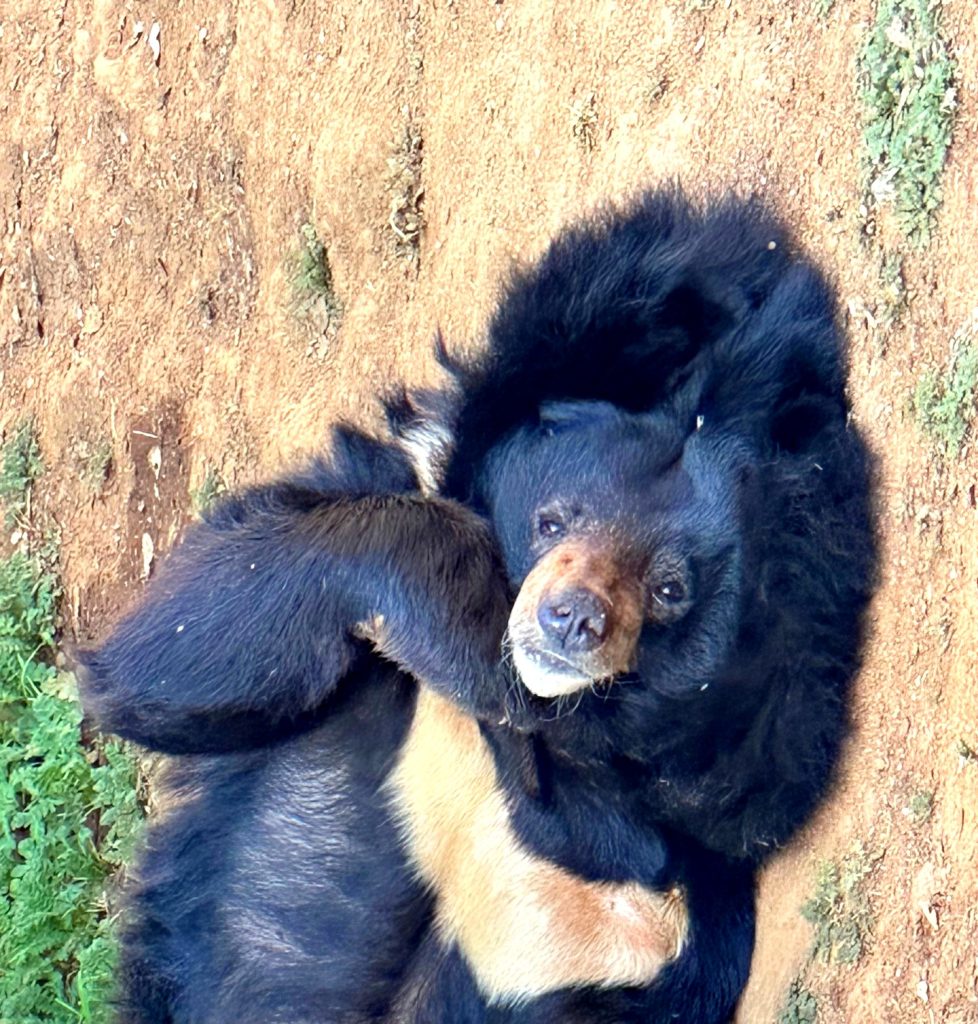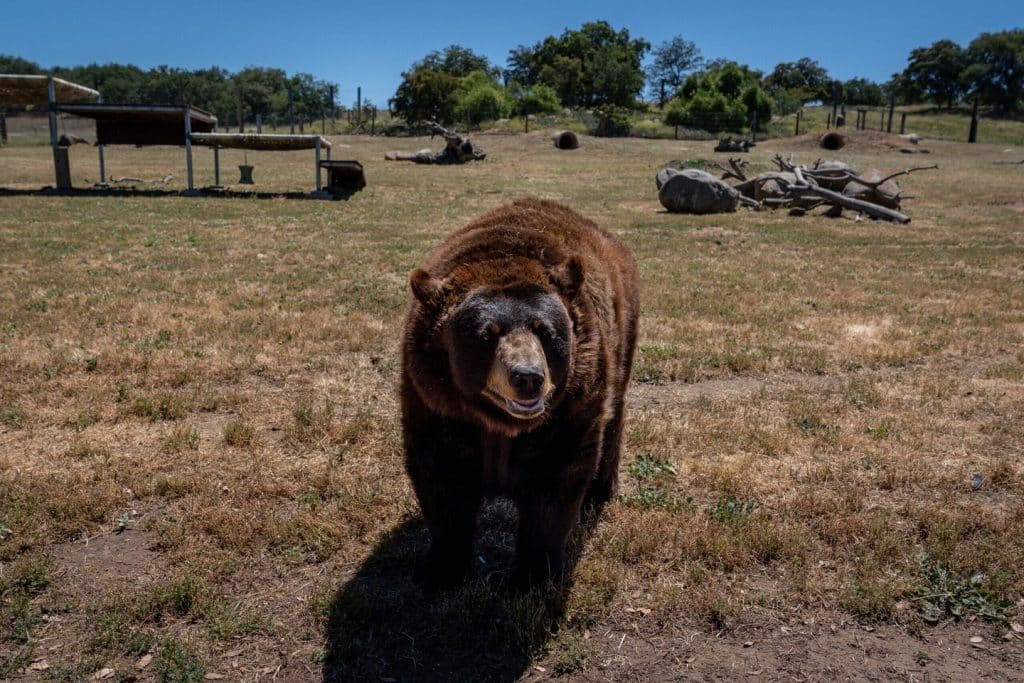

When you think about exotic animals, you probably picture them in the wild, roaming freely and living as nature intended. Unfortunately, that's not the reality for many animals in cages. Those in captivity (zoos, circuses, private ownership, etc.), often endure devastating physical and psychological trauma. The confinement to small cages with little space, stimulation, or care takes a heavy toll on their well-being.
Let’s take a closer look at how and why this happens.
Animals aren’t meant to be caged—they thrive in their natural habitats, where they roam freely and live as they should. But instead, for-profit organizations and private owners remove them from these environments. Some are poached from the wild, while others are bred in captivity, only to end up in cages for display or entertainment.
Imagine going from wide-open spaces to being stuck in a small, barren cage for the rest of your life. Captive animals can’t roam, explore, or even interact with others as they should. It’s not just sad—it’s a profound disruption of their physical and mental well-being.
When animals lose their natural behavior, everything starts to fall apart. Their instincts, which are essential for their survival and happiness, are stifled, leading to frustration, stress, and a sense of helplessness.
Many develop signs of zoochosis—like pacing, repetitive head movements, or even self-harm as their minds and bodies struggle to cope with an environment that denies them their most basic needs. This isn’t just about individual suffering; it’s a reminder of how far removed captivity can be from the rich, dynamic lives these animals are meant to live.
Social animals like grizzly bears and lions suffer even more because they’re deprived of their social group. They start to lose hope, a state called learned helplessness. It’s like they give up because they know nothing will ever change. Long-term exposure to such stressors leads to changes in brain structure, unhealthy weight gain or weight loss, reproductive failure, a weakened immune system, and general psychological stress. Technically, this is known as chronic stress.

In the wild, this isn’t something the animals typically deal with. So when they’re brought into captivity, they’re likely to suffer from chronic stress even if all their basic needs are met. This is partly because they may perceive the captive environment as threatening. The cages, artificial light conditions, unfamiliar environments, regular human contact, etc., heighten the sense of threat. And while some species adapt, most don’t.
Every animal held in captivity has a story—many of them heartbreaking. Their pasts are often filled with neglect, exploitation, and unimaginable conditions. Here is a quick look at three animals that we rescued and are now in our care at Lions Tigers and Bears:
Moka’s story begins when he was just two months old, rescued from smugglers trying to bring him across the border illegally. His start in life was fraught with danger and uncertainty. Although he received care at a wildlife facility for a year, his future remained bleak because he wasn’t considered valuable for captive breeding programs.
Moka’s early life shows how animals, even when rescued, endure instability and stress. Tigers like him often suffer from chronic stress and struggle to adapt after being torn from their natural habitats.

Sallie spent years trapped in a small, unsanitary cage at a roadside zoo with little care or proper nutrition. Her diet consisted of donuts and junk food, leaving her severely overweight and missing most of her teeth. Conditions like these take a toll not only on the body but also on the mind. Without proper veterinary care, enrichment activities, or access to a healthy environment, Sallie likely experienced learned helplessness, a psychological state where animals lose all hope due to repeated trauma.
Maddie was purchased as a cub to be a family pet but ended up confined to a small cage for over a decade. When she was nearly sold to a canned hunting ranch, her life took a turn when she was rescued. However, years of neglect in an inadequate enclosure had already left their mark. Bears like Maddie lose their natural behavior in captivity, and being deprived of mental stimulation and social interaction often leaves them with long-term psychological scars.
A good environment is critical for the well-being of all exotic animals. When animals have large, naturalistic areas to move around in, they live more comfortably and naturally. Space allows them to engage in behaviors that are part of who they are—like exploring, climbing, swimming, or just resting in a quiet corner. These small but meaningful activities greatly impact their mental and physical health.
Enrichment is all about keeping animals engaged and active. Environmental enrichment includes providing things that challenge their minds or encourage movement, like giving bears logs to roll or platforms to climb.
These activities help reduce stress and give animals something to focus on. For social species, having a group to interact with is a form of enrichment, too. It helps them build bonds, communicate, and feel secure.
When animals live in spaces that mimic their natural habitats, they thrive. They stay healthier, adapt better to their surroundings, and have fewer health problems overall. And this is especially critical for endangered species.
Things like fresh air, sunlight, and varied terrain keep their bodies strong and their minds sharp. Every detail counts—access to shade, areas to cool off, and room to roam all contribute to a happier, healthier life.
This is why providing proper care isn’t just about feeding animals or keeping them safe—it’s about creating an environment where they can truly live. It’s about respecting who they are and giving them what they need to feel whole again.

At Lions Tigers & Bears, we believe every animal deserves a life filled with dignity, care, and respect. Our accredited sanctuary exists to provide a safe haven for rescued exotic animals who have endured years of neglect, abuse, or confinement. For many, this is the first time they experience open spaces, proper care, and the freedom to simply be themselves.
Here, animals live in expansive habitats designed to meet their unique needs. Tigers like Moka have room to roam and areas to explore, while bears like Sallie and Maddie enjoy shaded spaces, climbing platforms, and pools to cool off. These naturalistic environments give them a sense of comfort and security, helping them recover from the trauma they’ve endured.
Our enrichment programs are another key part of their rehabilitation. From puzzle feeders that keep their minds sharp to opportunities for play and exploration, these activities help restore their natural instincts. Social animals form bonds with others, creating a community that fosters their emotional well-being.
Our efforts go beyond providing food and shelter—we give these animals the life they were meant to have. But none of this is possible without support from people like you. Lions Tigers & Bears is a nonprofit sanctuary, and every donation goes directly toward caring for these incredible animals, maintaining their habitats, and offering them the second chance they deserve.If you believe in animal welfare and giving animals a better life, join us. Your support—whether through a donation, a membership, or spreading the word—makes a big difference. Together, we can ensure these animals live out their days in peace and happiness.

Ph: 619.659.8078
Fx: 619.659.8841
[email protected]
24402 Martin Way, Alpine, CA 91901